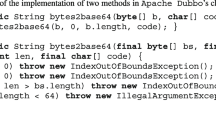Abstract
Modern concurrent programming languages like C# and Java have a programming language level memory model, which captures the set of all allowed behaviors of programs on any implementation platform—uni- or multi-processor. Such a memory model is typically weaker than Sequential Consistency and allows reordering of operations within a program thread. Therefore, programs verified correct by assuming Sequential Consistency (that is, each thread proceeds in program order) may not behave correctly on certain platforms! One solution to this problem is to develop program checkers which are memory model sensitive. In this paper, we develop a bytecode level invariant checker for the programming language C#. Our checker identifies program states which are reached only because the C# memory model is more relaxed than Sequential Consistency. It employs partial order reduction strategies to speed up the search. These strategies are different from standard partial order reduction methods since our search also considers execution traces containing bytecode re-orderings. Furthermore, our checker identifies (a) operation re-orderings which cause undesirable states to be reached, and (b) simple program modifications—by inserting memory barrier operations—which prevent such undesirable re-orderings.
Similar content being viewed by others
References
Java Specification Request (JSR) 133 (2004) Java memory model and thread specification revision
Abrams B. http://blogs.msdn.com/brada/archive/2004/05/12/130935.aspx
Brumme C. Weblog: memory model. http://blogs.msdn.com/cbrumme/archive/2003/05/17/51445.aspx
Burckhardt S, Alur R, Martin M (2006) Bounded model checking of concurrent data types on relaxed memory models: a case study. In: International conference on computer aided verification (CAV)
Burckhardt S, Alur R, Martin M (2007). Checkfence: checking consistency of concurrent data types on relaxed memory models. In: ACM conference on programming language design and implementation (PLDI)
Clarke EM, Grumberg O, Peled D (1999) Model checking. MIT Press, Cambridge
Collier WW (1992) Reasoning about parallel architectures. Prentice Hall, New York. Details available from http://www.mpdiag.com/archtest.html
Dill DL, Park S, Nowatzyk A (1993) Formal specification of abstract memory models. Symposium on research on integrated systems. MIT Press, Cambridge
Dwyer MB, Hatcliff JR Prasad VR (2004) Exploiting object escape and locking information in partial order reduction for concurrent object-oriented programs. Form Methods Syst Des 25(2–3):199–240
Bacon D et al. The “Double-checked locking is broken” declaration. http://www.cs.umd.edu/~pugh/java/memoryModel/DoubleCheckedLocking.html
Ford LR, Fulkerson DR (1956) Maximum flow through a network. Can J Math 8:399–404
Gopalakrishnan G, Yang Y, Lindstrom G (2004) QB or not QB: an efficient execution verification tool for memory orderings. In: International Conference on Computer Aided Verification (CAV)
Huynh TQ, Roychoudhury A (2006) A memory model sensitive checker for C#. In: Formal methods symposium (FM). http://www.comp.nus.edu.sg/~abhik/pdf/fm06.pdf
JGF (2001) The Java grande Forum Multi-threaded Benchmarks. http://www.epcc.ed.ac.uk/computing/research_activities/java_grande/threads.html
JPF (2005) The Java path finder model checking tool. http://javapathfinder.sourceforge.net/
Lamport L (1979) How to make a multiprocessor computer that correctly executes multiprocess programs. IEEE Trans Comput 28(9):690–691
Lea D The JSR-133 cookbook for compiler writers. http://gee.cs.oswego.edu/dl/jmm/cookbook.html
Manson J, Pugh W (2002) The java memory model simulator. In: Workshop on formal techniques for Java-like programs, in association with ECOOP
Manson J, Pugh W, Adve S (2005) The Java memory model. In: ACM symposium on principles of programming languages (POPL)
Microsoft (2005) Standard ECMA-334 C# specification. http://www.ecma-international.org/publications/files/ECMA-ST/Ecma-334.pdf 1
Microsoft (2005) Standard ECMA-335 common language infrastructure (CLI). http://www.ecma-international.org/publications/standards/Ecma-335.htm
Morrison V. Dotnet discussion: the DOTNET memory model. http://discuss.develop.com/archives/wa.exe?A2=ind0203B&L=DOTNET&P=R375
Nalumusu R et al (1998) The ‘test model checking’ approach to the verification of memory models of multiprocessors. In International conference on computer aided verification (CAV)
Nipkow T et al (2003) Special issue on Java bytecode verification. J Autom Reas 30(34)
Park S, Dill DL (1999) An executable specification and verifier for relaxed memory order. IEEE Trans Comput 48(2):227–235
Pugh W Test for sequential consistency of volatiles. http://www.cs.umd.edu/~pugh/java/memoryModel/ReadAfterWrite.java
Raynal M (1986) Algorithms for mutual exclusion. MIT Press, Cambridge
Roychoudhury A, Mitra T (2002) Specifying multithreaded Java semantics for program verification. In ACM international conference on software engineering (ICSE)
Schmidt D, Harrison T (1996) Double-checked locking: an optimization pattern for efficiently initializing and accessing thread-safe objects. In: 3rd annual pattern languages of program design conference
Stark RF, Borger E (2004) An ASM specification of C# threads and the NET memory model. In: Abstract state machines workshop. Lecture notes in computer science, vol 3065. Springer, Berlin
Yang Y, Gopalakrishnan G, Lindstrom G (2004) Memory model sensitive data race analysis. In International conference on formal engineering methods (ICFEM)
Yang Y, Gopalakrishnan G, Lindstrom G, Slind K (2003) Analyzing the Intel Itanium memory ordering rules using logic programming and SAT. In: Correct hardware design and verification methods CHARME
Author information
Authors and Affiliations
Corresponding author
Additional information
A preliminary version of this paper appeared as (Huynh and Roychoudhury, in: Formal Methods Symposium, 2006). The conference paper is available from http://www.comp.nus.edu.sg/~abhik/pdf/fm06.pdf.
This work was done when the first author was a Research Assistant at National University of Singapore.
Rights and permissions
About this article
Cite this article
Huynh, T.Q., Roychoudhury, A. Memory model sensitive bytecode verification. Form Methods Syst Des 31, 281–305 (2007). https://doi.org/10.1007/s10703-007-0041-6
Published:
Issue Date:
DOI: https://doi.org/10.1007/s10703-007-0041-6




